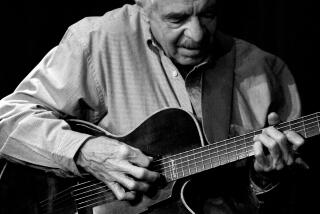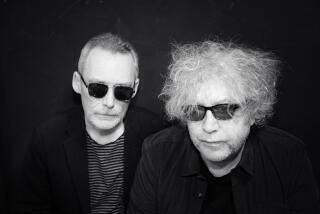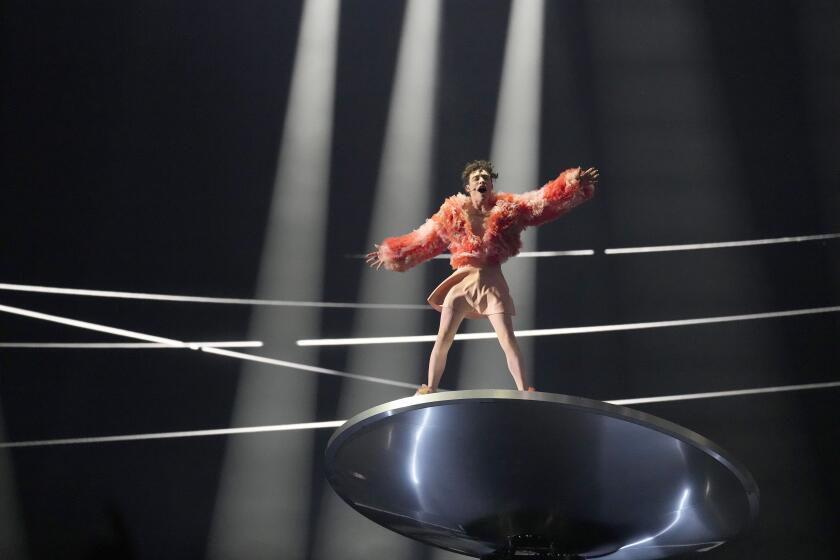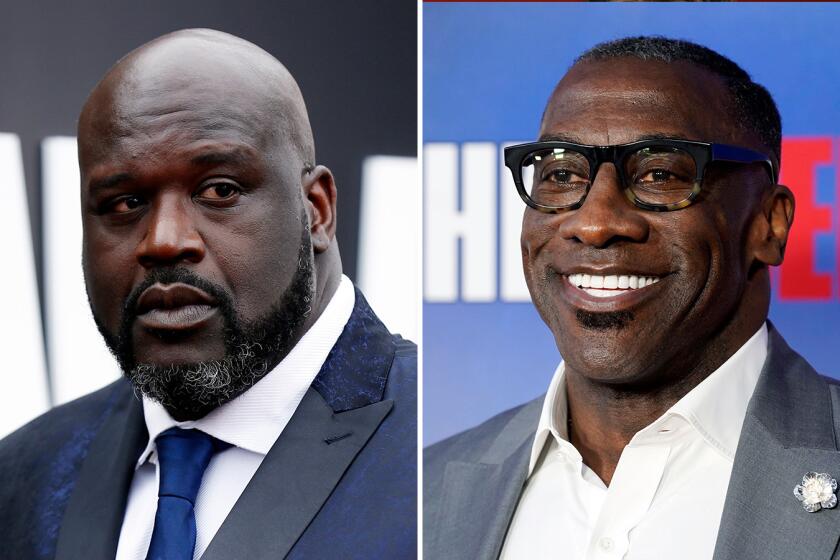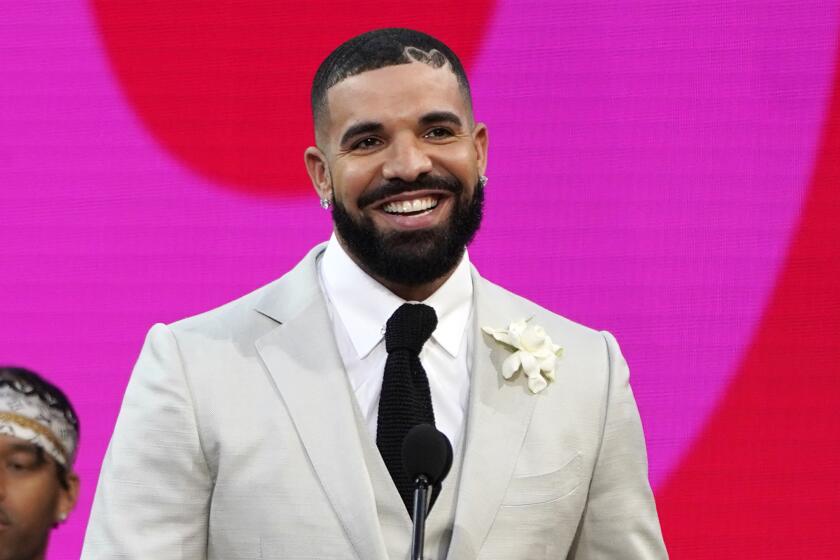Refracts and Figures
Though the temperature topped 100 degrees and the humidity felt equally high, singer Barbara Morrison was able to get a crowd of 9,000 to sweat a little more on Sunday, the closing day of the Long Beach Jazz Festival, as fans danced, waved their hands and shouted encouragement while she lustily sang “I know how to do it. . . .”
The three-day festival could make a similar claim. Without artistic or genre pretensions, its formula seems based on a single dictum: Let the good times roll.
Set between the city’s convention center and Shoreline Drive, Rainbow Lagoon Park played host Friday night to singer Michael Franks, drummer Alphonse Mouzon and guitarist Peter Whitey and on Saturday to singers Etta James and Ernie Andrews, pianist Gene Harris, bassist Stanley Clarke and others.
On Sunday, the park became a jazz encampment, with acres of beach blankets, lawn chairs and sun umbrellas established around the lagoon and the sun-baked VIP seating in front of the stage.
Security personnel estimated that several hundred people were waiting when the main gates opened at noon, about two hours before the first note was struck, so they could stake out the best spots.
The walkways that weave through the park and around the lagoon were bumper to bumper with strollers and served as socializing centers, as did the large camp of vendors hawking everything from from catfish and lemonade to straw hats, CDs and jazz T-shirts.
In the late afternoon, the lagoon filled with pedal boats. Frequently the music served only as background for this nine-hour party. Often, music was the focus.
Morrison’s performance, backed by drummer and festival founder Al Williams & His Jazz Society, roused the audience with mainstream pleasures in the heat of the day.
Morrison is a world-class blues and ballad interpreter, and the Los Angeles-based singer justified her growing national prominence with salty readings of “I Got It Bad (And That Ain’t Good),” “Exactly Like You” and drummer Williams’ “Midnight Blue.”
Williams led the day’s most straight-ahead ensemble, and its clean, clever solos from trumpeter Nolan Shaheed, saxophonist Herman Riley and pianist Clarence McDonald (who also served up excellent accompaniment for Morrison) put to the crowd a spark missing from the opening performance by bassist (and former Phoenix Suns forward) Wayman Tisdale.
Williams, whose booking slant set the festival’s good-time tone years ago, mixed up his set with Eddie Harris’ funky “Cold Duck Time,” a Latin number written by L.A.-based saxophonist Charles Owens titled “This One’s for Willie” and his own bop-comic “Shakey Jake.”
Guitarist Doc Powell’s soft set, which followed, saved the crowd’s hydration level by putting people back in their seats. Then saxophonist Ronnie Laws made a case for hard fusion with strong beats and over-the-top tenor play.
Responding to the heat, Laws applied aggressive tactics and improvisational abandon to blues-based originals before falling back to his soprano and tunes he recorded 20 years back. Laws played tenor and soprano simultaneously, in tandem with percussionist Mayuto Correa. Knowing a good thing when he heard it, Laws also played Harris’ “Cold Duck Time” and spontaneous interpretive dancing broke out in the crowd.
Keyboardist David Benoit hit a note with the crowd when he dropped hints of the James Bond theme and Henry Mancini’s theme from “Peter Gunn” in his Bond-inspired “Shaken, Not Stirred.” He placed three acoustic numbers inside his otherwise electric-beat set, a tact that could have lost the crowd with any drop in energy level, yet fans responded well to his strong play, especially on Vince Guaraldi’s “Cast Your Fate to the Wind.”
After dark, trumpeter-percussionist-pianist Arturo Sandoval turned up the heat with his Cuban-fired, Dizzy Gillespie-inspired bebop. Using saxophonist Chip McNeill as a foil, Sandoval squirted out incredibly high notes, played timbales with gusto and made an impressive showing on piano.
*
Singer Nancy Wilson, in particularly fine and expressive voice, revisited hits from her long career, embracing them with rhythmic and harmonic stylizing, working with class and sophistication.
Despite P.A. static that sometimes veiled her voice, Wilson used wide dynamic swings inside of single phrases and occasionally delivered spoken, dramatic lyrics. Her whispered lines on “Never Let Me Go” were particularly effective. Equally classy support came from pianist Alan Broadbent, bassist John B. Williams and drummer Roy McCurdy. Few in the crowd left before Wilson’s closing set ended at 11 p.m.
More to Read
The biggest entertainment stories
Get our big stories about Hollywood, film, television, music, arts, culture and more right in your inbox as soon as they publish.
You may occasionally receive promotional content from the Los Angeles Times.
